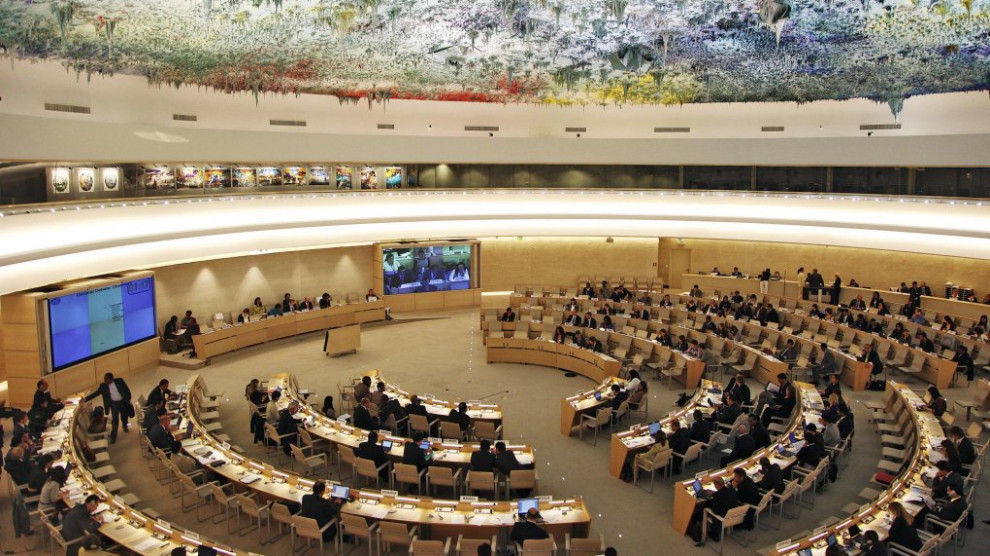UPR session on human rights in Turkey continues
The Universal Periodic Review (UPR) of Turkey at the United Nations (UN) Human Rights Council started today (January 28) in Geneva.
The Universal Periodic Review (UPR) of Turkey at the United Nations (UN) Human Rights Council started today (January 28) in Geneva.

Turkey's human rights record is examined by the United Nations Human Rights Council's Universal Periodic Review (UPR) Working Group for the third time today. The session at UN Geneva headquarters is attended by UN member states and civil society organizations.
Turkey is one of the 14 States reviewed by the UPR Working Group during its session taking place from 20 to 31 January. Turkey's first and second UPR reviews took place in May 2010 and January 2015, respectively.
The documents on which the reviews are based are:
1) national report - information provided by the State under review;
2) information contained in the reports of independent human rights experts and group, known as the Special Procedures, human rights treaty bodies, and other UN entities;
3) information provided by other stakeholders including national human rights institutions, regional organizations and civil society groups.
The three country representatives serving as rapporteurs ("troika") for the review of Turkey are: Bahrain, Slovakia and Somalia. The delegation of Turkey is headed by Mr. Faruk Kaymakcı, Ambassador, Deputy Minister of Foreign Affairs & Director for EU Affairs.
The UPR is the most comprehensive international human rights process, which involves the review of the human rights records of all UN Member States by the Human Rights Council every five years. Within the framework of the UPR, which was launched in 2008, Turkey's first review was conducted in 2010 and the second review in 2015.
Turkey's national report constituting the basis of the country's third review was submitted to the Human Rights Council on 14 October 2019 and published by the UN.
'Freedoms are under constitutional protection'
Making a presentation at the session, Turkey’s Ministry of Foreign Affairs argued that the country continues the practice of "zero tolerance to torture” and everyone in the country has the right to hold an assembly or a demonstration.
It asserted that freedom of gathering and freedom of organization are under constitutional protection and the restrictions on these freedoms are in line with the European Court of Human Rights (ECtHR) standards.
As for the dismissed mayors, the delegation said there were ongoing criminal investigations against them.
The Ministry of Interior and the Ministry of Justice also made presentations at the session.
Recommendations by member states
In its recommendations to Turkey, Armenia stressed the subjects of freedom of expression and preventing hate language against minorities.
Belgium recommended that the necessary measures should be taken with regards to the Anti-Terror Law and early marriages.
Bosnia and Herzegovina advised Turkey to prevent discrimination and implement the principle of equality.
Canada recommended Turkey to ensure separation of powers and the independence of the judiciary, ensure to right to assembly for especially LGBTI+s, women and dissidents and not prevent the actions of rights defenders.
Croatia made recommendations on the education of girls and the right to conscientious objection.
Czechia recommended Turkey to implement ECtHR decisions and respect the rule of law and the independence of the judiciary. It also called on Turkey to stop replacing elected mayors with trustees.
Egypt recommended the investigation of the allegations of torture and mistreatment and prevention of impunity.
Delegations of Haiti, India, Japan and Kyrgyzstan made recommendations regarding the protection of women's rights, prevention of gender-based violence, and increase of women's role in decision-making mechanisms.
Malta recommended the prevention of hate speech and hate crime against LGBTI+s, protection of pride marches and inclusion of LGBTI+ representatives in decision-making processes.